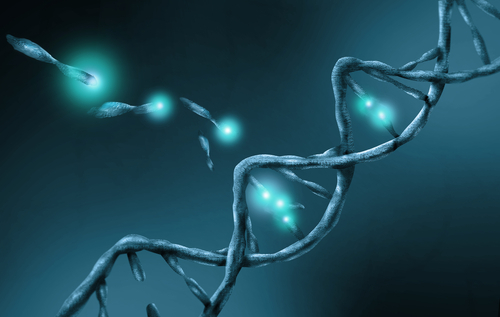'South Asians vulnerable to rare genetic diseases'
IANS Jul 19, 2017
One-third of the population of South Asia, around 1.5 billion people, is vulnerable to rare genetic diseases, a study said.

The study was conducted by the Centre for Cellular and Molecular Biology (CCMB) and published online in Nature Genetics. CCMB Director Rakesh K. Mishra told reporters on Tuesday that the effort would facilitate and accelerate predictive and personalised medicine.He said that he is excited about the potential of future research to capitalise on the opportunity highlighted by this study to improve health in individual communities in South Asia."This insight highlights an extraordinary opportunity to identify mutations that are responsible for population-specific disease and to test for and decrease the burden of recessive genetic diseases in South Asia," he said.
"Every individual carries several mutations that, if they occurred in two copies, would lead to serious recessive diseases. In South Asia, 'founder events' in which small numbers of ancestors carrying such mutations gave rise to large numbers of descendants - combined with endogamy or marriage only within groups - causes these mutations to often be carried in two copies, leading to a far higher rate of population-specific diseases than elsewhere in the world," says the study.South Asia is inhabited by about 5,000 anthropologically well-defined populations, many of which are endogamous.The new study was led by scientist Kumarasamy Thangaraj of CSIR-CCMB and David Reich of Harvard Medical School in collaboration with colleagues from other institutes.The study analyzed samples from more than 2,800 individuals from over 275 distinct South Asian populations who belong to various social and linguistic groups from India, Pakistan, Nepal, Sri Lanka, and Bangladesh using about 6,00,000 genome-wide markers.
The authors found that 81 out of 263 unique South Asian groups, including 14 groups with estimated census sizes of over a million, have a strong founder event than the one that occurred in both Finns and Ashkenazi Jews in the West.Thangaraj said that our study provides an opportunity for discovering population-specific disease causing genes in communities known to have strong founder events.Mapping of mutations that are responsible for population-specific disease would help in developing strategies for diagnosis, counselling, management and modifying the clinical course of these disorders and to reduce the disease burden among South Asians, he added.
-
Exclusive Write-ups & Webinars by KOLs
-
Daily Quiz by specialty
-
Paid Market Research Surveys
-
Case discussions, News & Journals' summaries